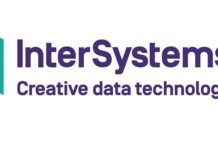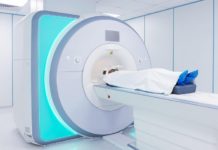Royal Philips Electronics and Celsion Corporation announced the signing of a joint research agreement focusing on a new cancer treatment that combines Philips’ ultrasound technology with Celsion’s drug delivery solution to target tumors with high concentrations of a cancer-fighting drug.
Philips and Celsion announce research agreement to develop new cancer treatment that combines ultrasound, drug delivery technology
The Philips HIFU system is designed to precisely control and deliver energy non-invasively to targeted tissues. HIFU is being researched to evaluate its use in activating Celsion’s temperature-sensitive liposome technology to release encapsulated chemotherapy drugs such as doxorubicin. Doxorubicin is the potent anticancer agent in ThermoDox®. By using Philips’ HIFU technology to deliver targeted, localized activation temperatures, Philips’ and Celsion’s research will explore the potential for ThermoDox® to non-invasively treat a number of solid tumor cancers that may be susceptible to the combination of a high concentration of doxorubicin and concurrent hyperthermia.
"Localized drug delivery is being evaluated to determine the potential for increasing the potency of drugs in their target regions with equal or less toxicity to critical organs,” said Falko Busse, vice president and chief technology officer, MR, for Philips Healthcare. “The Philips MR-HIFU system could be a powerful tool to deliver these thermally activated drugs. Our volumetric heating with feedback technology is being designed to allow control of both the tissue temperature and the heating area. We are very excited about this research collaboration with Celsion in the promising field of localized drug delivery."
“We are very pleased to be working with Philips, a recognized world leader in healthcare technology. Philips’ vision and commitment to the advancement of effective cancer treatment is inspirational and consistent with that of Celsion’s overarching mission to bring the promise of temperature-sensitive liposomal technology to effectively treat difficult cancers,” added Michael H. Tardugno, Celsion’s president and chief executive officer, commented. “Moreover, Philips’ MRI-guided HIFU technology has the potential to heat a defined area while providing a real-time visualization of the heated area through the use of MRI.”
Philips and Celsion are conducting research to test two premises. First, ThermoDox® has the potential to eliminate cancer cells that may otherwise remain viable and be responsible for secondary tumors by using HIFU to aid in releasing the concentrated drug within and around the margins of the heated area. Second, using HIFU in the low temperature activation mode in combination with ThermoDox® has the potential to provide a means to deliver high concentrations of chemotherapeutics to multiple sites at virtually any location in the body.
Tardugno concluded, “If our thesis proves to be correct, the Celsion-Philips tumor targeting combination has the potential to shift the paradigm for the treatment of primary and metastatic disease.”
About ThermoDox®
ThermoDox® is Celsion's proprietary heat-sensitive liposomal encapsulation of doxorubicin, an approved and frequently used anti-cancer drug used in the treatment of various cancers including breast cancer. Localized mild hyperthermia (40-42 degrees Celsius) releases the entrapped doxorubicin from the liposome. This delivery technology enables high concentrations of doxorubicin to be deposited preferentially in a targeted tumor.
About Celsion
Celsion is dedicated to the development and commercialization of oncology drugs including tumor-targeting treatments using focused heat energy in combination with heat activated drug delivery systems. Celsion has research, license or commercialization agreements with leading institutions such as the National Institutes of Health, Duke University Medical Center, University of Hong Kong, North Shore Hospital-Albert Einstein Medical School.
For more information on Celsion, visit: http://www.celsion.com




















